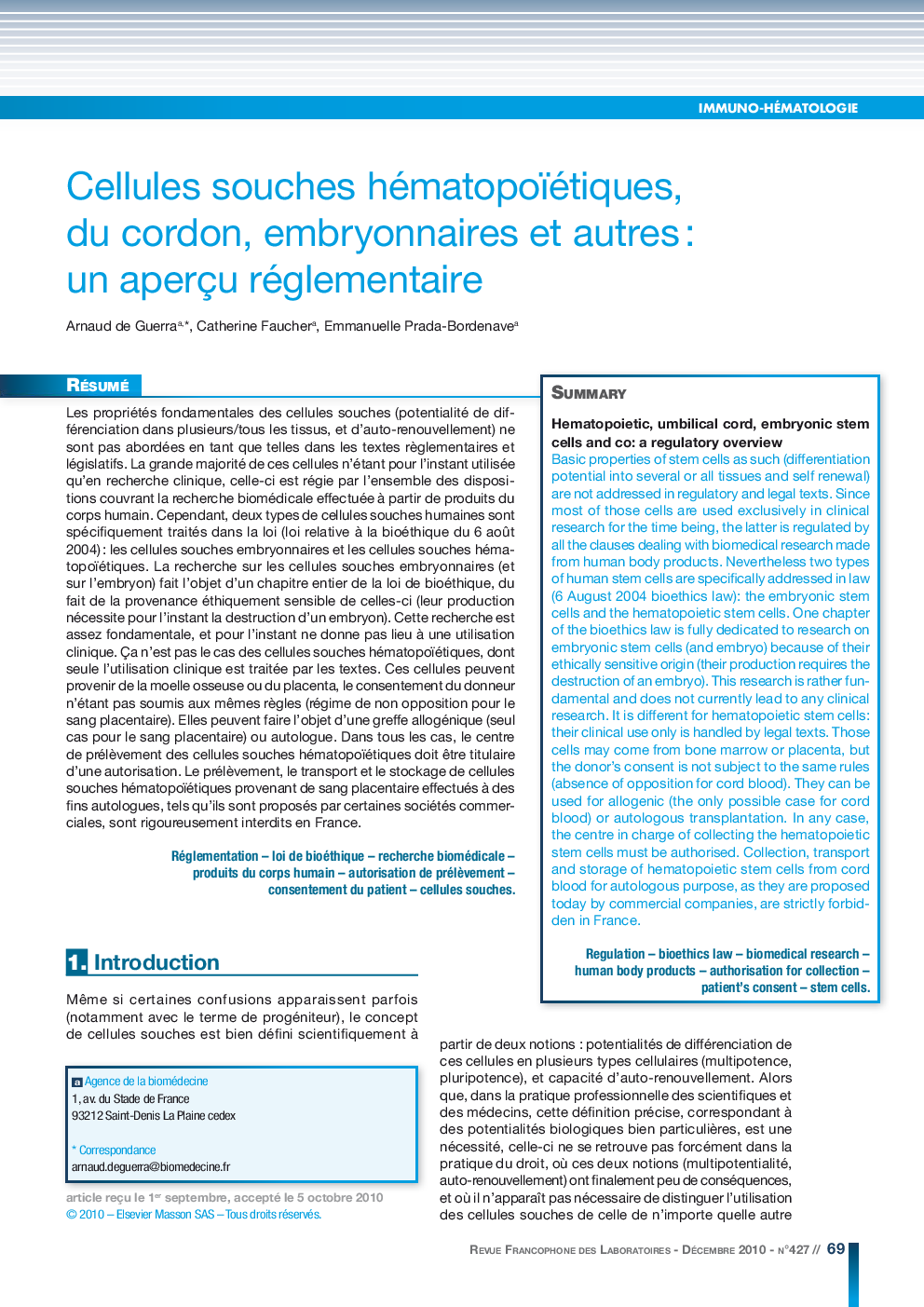| Article ID | Journal | Published Year | Pages | File Type |
|---|---|---|---|---|
| 7657348 | Revue Francophone des Laboratoires | 2010 | 9 Pages |
Abstract
Basic properties of stem cells as such (differentiation potential into several or all tissues and self renewal) are not addressed in regulatory and legal texts. Since most of those cells are used exclusively in clinical research for the time being, the latter is regulated by all the clauses dealing with biomedical research made from human body products. Nevertheless two types of human stem cells are specifically addressed in law (6 August 2004 bioethics law): the embryonic stem cells and the hematopoietic stem cells. One chapter of the bioethics law is fully dedicated to research on embryonic stem cells (and embryo) because of their ethically sensitive origin (their production requires the destruction of an embryo). This research is rather fundamental and does not currently lead to any clinical research. It is different for hematopoietic stem cells: their clinical use only is handled by legal texts. Those cells may come from bone marrow or placenta, but the donor's consent is not subject to the same rules (absence of opposition for cord blood). They can be used for allogenic (the only possible case for cord blood) or autologous transplantation. In any case, the centre in charge of collecting the hematopoietic stem cells must be authorised. Collection, transport and storage of hematopoietic stem cells from cord blood for autologous purpose, as they are proposed today by commercial companies, are strictly forbidden in France.
Keywords
Related Topics
Physical Sciences and Engineering
Chemistry
Analytical Chemistry
Authors
Arnaud de Guerra, Catherine Faucher, Emmanuelle Prada-Bordenave,
